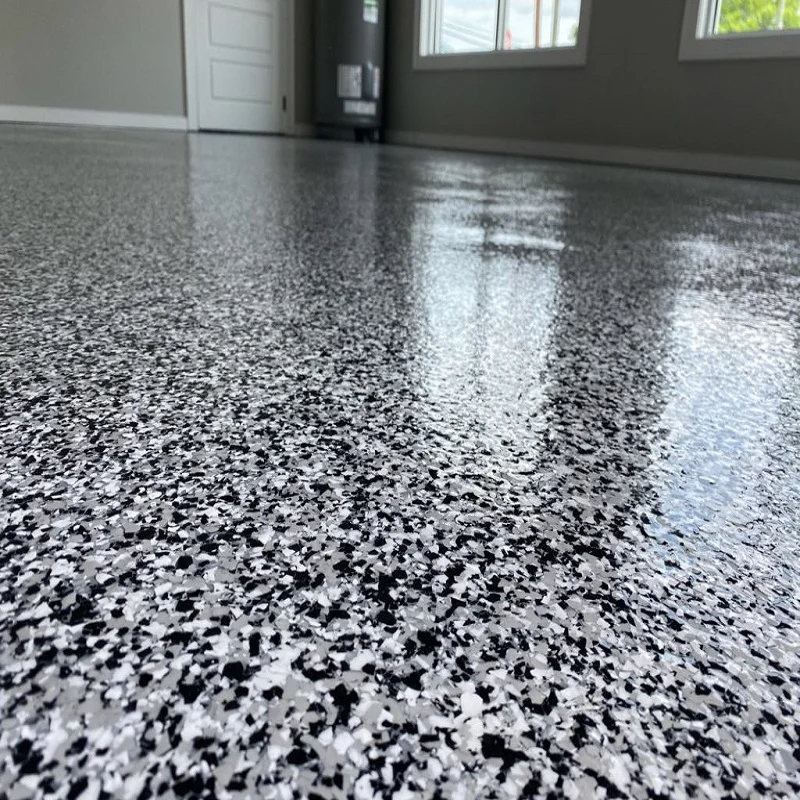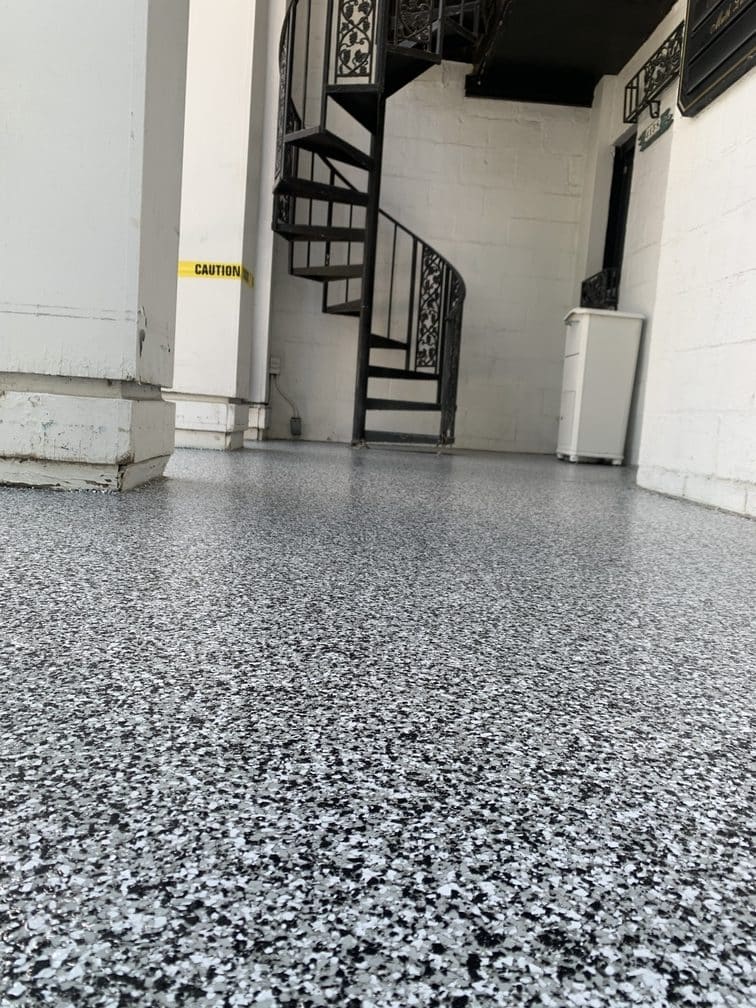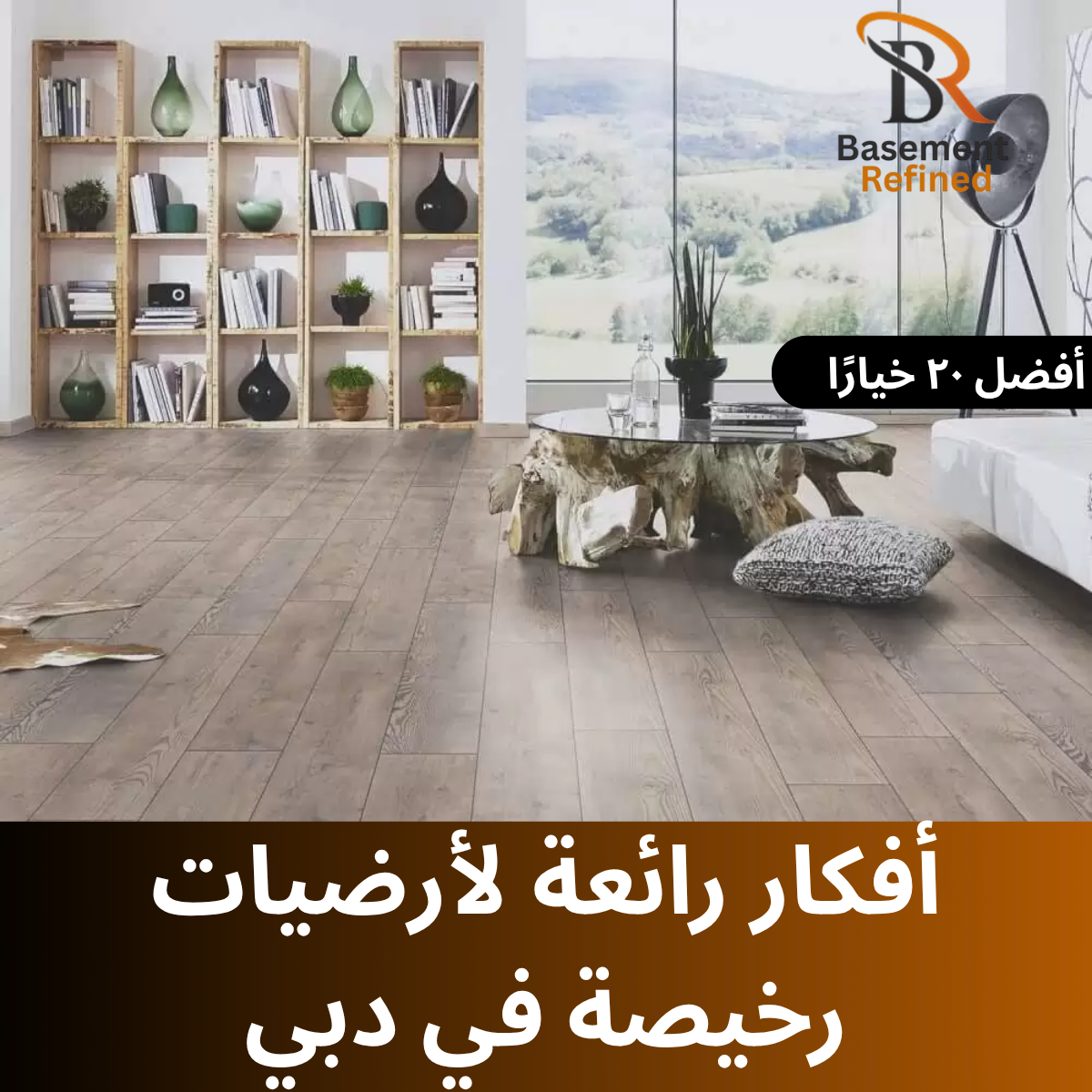Opening Hook
Imagine stepping into your Dubai home’s lower level and breathing in the cool, crisp air of an elegant basement lounge. The floor beneath your feet glimmers like marble but feels warm and cozy. In a city built on sand, basements often battle humidity, rising damp, and even flash floods — which makes choosing the right basement flooring ideas in Dubai not just a matter of style, but of survival.
When Khalid and Sara in Jumeirah converted their basement level into a family movie room, they nearly ruined the walls with mold because they picked the wrong basement floor covering. Today, they share a secret: the basement flooring option they finally picked resists moisture, looks luxurious, and stays intact even after heavy rains.
If you’re planning a basement (or semi-basement) in Dubai, this article explores the smartest and most stylish basement flooring ideas you can trust — ones that balance design, durability, and moisture control in the UAE’s climate.
Read More: Need fast and affordable AC repair service in Dubai? Get expert help you can trust today!
Who This Article Is For
This article is tailored for homeowners, architects, interior designers, and property developers in Dubai and the UAE who are planning or renovating basements, underground rooms, or semi-basement floors.
You might be:
- A homeowner converting an underused basement into a lounge, gym, or guest apartment.
- An interior designer seeking moisture‑resistant options for clients in coastal and humid Dubai
- A developer or builder looking to specify basement flooring materials that comply with UAE standards.
- A DIY enthusiast in Dubai who wants to know which basement flooring materials will reliably last
Throughout, I’ll reference real-life scenarios in Dubai (cold nights, humid months, sudden downpours) to make choices concrete and relatable.
Read More: Basement Flooring Ideas That Last — Especially in Dubai’s C
Why Basement Flooring in Dubai Needs Extra Care
Unique climatic challenges in Dubai
Basements in Dubai face two big threats: moisture and heat. Concrete slabs are in direct contact with the earth, which can transmit vapor and liquid water upward. Sudden heavy rains (with weak drainage) may push water into cracks. Local observations show record rainfall events reaching over 140 mm in a day, pushing many basement designs to fail without proper waterproofing.

Meanwhile, relative humidity in indoor spaces often hovers close to 60%. That’s an open invitation to mold, mildew, and warping, especially for porous or organic flooring materials.
Thus, the right basement floor covering must:
- Resist moisture and vapor intrusion.
- Tolerate temperature/humidity swings.
- Allow drainage or quick dry cycles.
- Be durable under foot traffic and maintenance.
With those constraints in mind, here are the top basement flooring ideas (along with pros, cons, and tips) ideal for Dubai.
Read More: Revive Concrete Floors :Basement Flooring Ideas Dubai
Best Basement Flooring Options in Dubai
Here’s a curated list of basement flooring materials that perform well in Dubai’s conditions, along with tips on where each shines.
1. SPC / Rigid Core Vinyl Flooring
One of the most popular basement flooring ideas lately in the UAE is SPC (Stone Plastic Composite) flooring. It combines strength, flexibility, and moisture resistance.
Why it works in Dubai:
- Waterproof top layers prevent water ingress.
- Rigid core resists expansion/contraction in heat.
- Click-lock systems allow floating installation without adhesives.
- Many suppliers in Dubai stock SPC with IXPE or cork underlays for sound insulation
Drawbacks / cautions:
- Requires a very level, smooth slab
- Must leave expansion gaps and use transitions near glass walls
- Prolonged heat near glazed areas may stress planks.
Typical cost & usage:
- Material costs often range from AED 30 to AED 70 per sq m in Dubai for quality SPC lines.
- Best for family rooms, lounges, hobby areas, not heavy industrial or flood-exposed zones
Tip: Always do a moisture test (ASTM F2170 or F1869) before installing SPC over concrete. Use vapor barriers or primers if needed.
2. Epoxy Coating / Resin Floors
If your goal is a seamless, flood-resilient, low-maintenance finish, epoxy basement flooring is a top contender in Dubai. Many local contractors specialize in epoxy basement coatings.
Benefits:
- Creates a monolithic, impervious “shell” over the slab
- Resists stains, spills, chemicals, and abrasion
- Easy to clean and maintain
- Customization: metallic, flakes, colored finishes available
Challenges / cautions:
- Surface prep is critical — any inconsistency will show.
- High vapor pressure in the slab may cause “blistering” if not mitigated.
- Not ideal if severe flooding is expected without a drainage design
Use cases:
- Basements are used as parking garages, workshops, and gyms.
- Storage rooms or utility areas
Cost & local market:
- Local installation, including prep, may run AED 120 to 400 per sq m in 2025, depending on system and finish.
- Many epoxy providers in Dubai offer anti-slip and low-VOC systems suited for interior.
Tip: Use anti-slip additives on walking surfaces. Ensure proper curing and ventilation when installing indoors.
3. Porcelain or Ceramic Tile
Dense, near‑nonporous porcelain tiles are a reliable classic. They handle moisture well and offer a timeless look.
Advantages:
- Excellent resistance to water and stains
- Lifespan of decades with proper installation
- Huge range of styles, textures, and sizes
Limitations:
- Hard and cold underfoot (you may want underfloor heating or rugs)
- Grout lines need sealing and upkeep.
- Slippage can be an issue — choose textured or anti-slip tiles.
Ideal for:
- Rooms with drainage (laundry, utility zones)
- Guest bathrooms or wet basement zones
- Staff quarters or servicing rooms
Cost & tips:
- Quality porcelain tile in the UAE varies greatly — from economical to premium.
- Use flexible, moisture-rated adhesives and grout.
- Consider large-format tiles to reduce joints.
4. Rubber Flooring (Tiles or Rolls)
Rubber flooring is rising in popularity — especially in gym or playroom areas in Dubai.
What makes it good:
- Inherently water-resistant
- Excellent shock absorption and comfort
- Good slip resistance
- Durable under heavy traffic
Cons / cautions:
- Initial odor is common (though dissipates)
- Fewer decorative options than vinyl/tiles
- Hard objects or furniture legs may dent it over time.
Applications:
- Basement gyms, kids’ playrooms, multipurpose rooms
- Zones where cushioning and noise isolation matter
Tip: Choose low-VOC (GREENGUARD or equivalent) rubber materials. Use carpet transitions or edge trims where rubber meets rigid flooring.
5. Engineered Wood / Laminate (with precautions)
While wood is often risky in damp environments, certain engineered or laminate systems specially rated for below-grade use can succeed — if you maintain strict humidity control.
Pros:
- Warm, elegant wood look
- Easy to install click systems
Challenges:
- Vulnerable to moisture — swelling or cupping
- Requires perfect moisture barriers and controlled indoor humidity
- Not ideal in frequently humid basements
Use case:
- Basements that are already well-sealed and HVAC-controlled
- Lounge or reading rooms
Tip: Monitor indoor humidity, keep it between 40–55%. Use only subfloor systems rated for below-grade applications.
6. Carpet Tiles & Modular Carpet
Soft and inviting, carpet tiles can humanize a basement lounge. But in Dubai’s humid climate, they come with caveats.
Advantages:
- Comfortable, sound-absorbing
- Replaceable tiles allow for spot repair.
- Less cold underfoot
Drawbacks:
- Susceptible to mold/mildew if moisture is present
- Can trap odors and be harder to clean
Best use:
- Rooms with robust dehumidification and very low water risk
- Over subfloors with vapor suppression systems
Tip: Use carpet tiles with moisture-resistant backing and combine with dehumidifiers and slot vents.
7. Sealed / Polished Concrete
Sometimes the raw slab, if prepped, sealed, and polished well, becomes one of the most durable options. Especially when topped with a clear sealer or epoxy for aesthetic effect
Pros:
- Ultra-durable, low cost once the slab is right
- Minimal layers reduce failure points.
- Can be combined with epoxy overlays
Cons:
- Cold, hard underfoot
- May still darken or stain where moisture accumulates
- Less forgiving of surface imperfections
Use case:
- Mixed-use utility or high-traffic zones
- Industrial basements
Tip: Use densifiers, grinders, and penetrating sealers in Dubai’s environment. If desired, mix in decorative agents or overlay coatings for aesthetic appeal.
Read More: Basement Flooring Ideas for Dubai Homes: Stylish, Durable, and Smart Solutions
How to Choose Basement Flooring Material — A Decision Guide
Choosing the wrong flooring can lead to damage, frustration, and costly repairs. Use this step-by-step guide to pick the right basement flooring option for your Dubai project.
1. Test Moisture & Vapor Levels
Always begin with a standardized moisture test (e.g., relative humidity probe, calcium chloride) on your slab. If vapor pressure is high, you’ll need mitigation (vapor barrier, epoxy primer) before top flooring.
2. Understand Use-case & Environment
- Is it a lounge or a gym? (choose comfort, resilience)
- Is flooding possible? (favor waterproof or seamless options)
- Will it carry vehicles or heavy loads? (favor epoxy or dense tile)
3. Allow for Thermal & Humidity Movement
Floors expand and contract with heat. Choose systems with expansion gaps or flexible edges, or floating floors that adapt.
4. Consider Acoustic & Comfort Needs
If you want quiet or warm surfaces, combine your primary flooring with underlayments or sound mats (e.g., IXPE under SPC).
5. Factor Maintenance & Repair
- Epoxy/sealed floors are easy to mop
- Tiles need grout sealing.
- Carpet tiles let you swap damaged modules.
- Plan for cleaning compatibility.
6. Budget & Installation Complexity
Material cost is only part of the story. Prep, leveling, vapor mitigation, and labor in Dubai often dominate cost. Always ask for full system quotes.
7. Check Local Suppliers & Compliance
Use local Dubai or UAE vendors for materials that handle shipping, climate acclimatization, and warranties. Ask suppliers about installation in the Gulf climate (e.g., SPC suppliers in the UAE). Ensure low-VOC products and compliance with building codes or green building programs (AlSa’fat, Estidama).
Read More: 75 Basement Flooring Ideas Perfect for Dubai Homes
Basement Flooring Ideas — Combinations & Zoning
You don’t need to stick to one material across the entire basement. Mixing and zoning can combine strengths and aesthetics.
- Zone A (lounge): SPC or engineered wood over vapor barrier
- Zone B (gym/play area): Rubber tiles or rubber roll
- Zone C (storage/utility): Epoxy or sealed concrete
- Transition strips / thresholds: Use aluminum or rubber thresholds between different materials
Such hybrid layouts give design freedom while maximizing performance.
Read More: Best Basement Flooring Ideas for Dubai Homes | Laminate on Concrete & More
Featured Basement Flooring Ideas by Use Case
Here are a few mini case stories to show how homeowners in Dubai might use the options above:

- Family Media Room in JLT
After a faulty choice of laminate caused warping, the owner replaced it with SPC + IXPE underlay. They left 8 mm expansion gaps and installed an active dehumidifier. The floor now handles carpet rugs, foot traffic, and spills with no issues. - Basement Gym in Al Barsha
The homeowner installed rubber tiles in the workout zone, interlocked over a moisture mitigation membrane. The rest was epoxy-coated. The transition is seamless but still distinct. They report comfort underfoot and easy clean-ups. - Staff Quarters + Utility Zone in Villa
The lower floor had a laundry and a maid’s room. The designers used matte porcelain tile with soft rugs for comfort. The drainage areas have floor drains, and the tiles in that zone are textured for anti-slip.
Read More: 75 Best Basement Flooring Ideas for Dubai Homes
FAQ – Featured Snippets
Q: What is the best flooring for basements in Dubai?
A: For most living or multifunction zones, SPC (rigid-core vinyl) is considered a top choice. For high-moisture or utility zones, epoxy or porcelain tile is are excellent pick.
Q: Can I use laminate in Dubai basements?
A: Only with extreme caution. Laminate is vulnerable to moisture. Use engineered / waterproof-rated systems, and ensure excellent moisture control.
Q: How much does basement flooring cost in Dubai?
A: Basic SPC or vinyl options may start around AED 30–70/sq m. Epoxy systems with full prep may cost AED 120–400/sq m. Porcelain tile varies widely. Always include slab prep and vapor mitigation.
Q: How do I prevent mold under the basement flooring?
A: Use vapor barriers, moisture tests, proper drainage, and dehumidifiers. Keep interior humidity under ~60% (ideally 40–55%).
Q: Can I install underfloor heating under basement flooring?
A: Yes — but only when the system, flooring, and substrate are compatible and rated for combined use.
Read More: Looking to refresh your home? Discover trusted and affordable painting services in Dubai today!
Conclusion & Next Steps
Designing a basement in Dubai is more than choosing a style; it’s engineering a balance of moisture control, durability, aesthetics, and comfort. The best basement flooring ideas are ones that adapt to Dubai’s climate: moisture‑resistant, resilient, and visually appealing.
Here’s the quick takeaway:
- Prioritize vapor & moisture testing.
- Use SPC or vinyl in living areas.
- Prefer epoxy or tile in utility/flood zones.
- Use rubber for cushioning zones like gyms.
- Add transition elements and acoustics.
- Source from reliable local suppliers in Dubai
- Maintain indoor humidity and use dehumidifiers.
If you’re planning your basement project now, start by arranging a slab moisture test and drafting a zone plan. Once you know which materials suit each zone, request vendor quotes and sample boards, especially from Dubai-based flooring companies.
Ready to pick your flooring? I can help compare specific SPC lines, epoxy systems, or tile brands available in Dubai. Would you like me to source supplier names, pricing, or sample boards in Dubai for your project?
🏗️ Basement Project Calculator
Latest Post
-
Basement Ceiling Ideas Hide Ductwork Smartly
Opening Hook Imagine walking into your basement in Boise, Idaho—where the ceiling is so low that you brush your head on the joists—and noticing a sleek, well-designed backdrop above you instead of exposed ductwork and pipes. That difference, thanks to smart basement ceiling ideas, transforms a cramped, unfinished area into a welcoming space for movie…
-
أفكار رائعة لأرضيات رخيصة في دبي | أفضل ٢٠ خيارًا
تخيل زوجين شابين في شقة مريحة في مرسى دبي، يخطوان حافيي القدمين على أرضية أنيقة بلمسة خشبية. غرفة المعيشة تتلألأ بضوء مسائي خافت، والأرضية تحتها لا تزال تبدو جديدة تمامًا رغم سنوات من الاستخدام – وكل هذا بميزانية محدودة. هذه هي قوة اختيار أرضيات جميلة ورخيصة في دبي: الأناقة والتوفير في آن واحد. التركيز على…
-
Beautiful Cheap Flooring Ideas in Dubai | Top 20 Picks
Imagine a young couple in a cosy apartment in Dubai Marina, stepping barefoot onto a sleek, wood-look floor. The living room glows with soft evening light, the flooring beneath still looks brand-new despite years of use—and all this on a budget. That’s the power of choosing beautiful, cheap flooring in Dubai: style and savings in…



